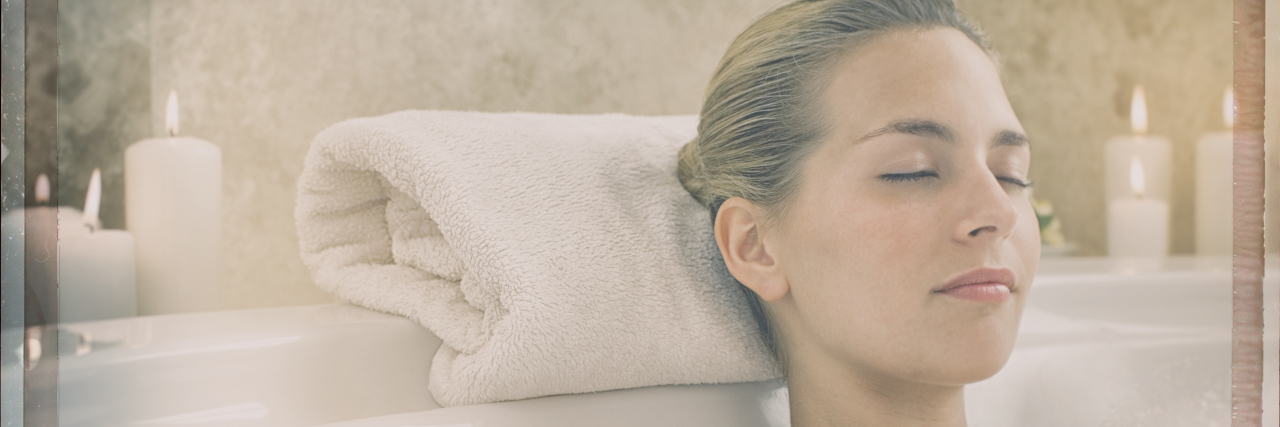5 Reasons Self-Care Is Important, Whether You Have a Disability or Not
Self-care is immensely important when it comes to managing life, whether one has a disability or not. Finding a healthy balance between long work hours and a fast paced home life, all while possibly juggling a disability can prove to be overwhelming. We all need a moment to enjoy some stress-free time to ourselves and with our families. I wanted to share five reasons why I believe self-care is such a crucial aspect of a healthy and happy life.
1) Rest is a necessity. Everyone needs an adequate amount of sleep in order to function properly, and this is especially true in my daily life as someone who has cerebral palsy in its mildest form and yet battles severe fatigue. Listening to your body is key. Allowing time to be open in the midst of a busy schedule for plenty of rest can help a person feel fully awake and ready to start the day while also strengthening memory and concentration. Don’t push your body past its limitations. Focus on what you can do instead of placing unrealistic expectations on to yourself.
2)Mental health recharging is needed. Mental health functionality often carries a much heavier significance in today’s workforce. It seems like everyone struggles with stress, debt, or some source of aggravation. Mental health days are essential for giving the mind a chance to breathe; it isn’t humanly possible to do your best without taking a minute to refocus your head. As someone who deals with anxiety, a day of simply existing is a must for me in order to recharge and begin again.
3) Personal lives can be great tension relievers. Quality time devoted to family and a variety of fun-spirited activities holds significance in terms of self-care. Life can’t be lived as all work and no play; participating in a favorite spare time activity is an enjoyable form of self-care. We need personal lives outside of the workplace. Hobbies can be wonderful relievers of stress, tension, and anxiety. Living a less tense life can lead to days that are more fulfilling.
4) Pursue better physical health and self-discovery. Optimal physical health and a nutritious diet are crucial in a great self-care regimen; self-discovery can also be a beautiful part of self-care. So much can be good can be done when we set small, yet attainable goals for ourselves. For example, let’s say a person wants to lose 10 pounds in three months. When they achieve that goal, they will hopefully discover they can accomplish anything they put their mind to. This not only improves their physical health, but also their level of positivity in life. Confidence in oneself is key to happiness. Eat right, set small goals, and focus on building yourself up. Self-confidence is self-care.
5) Routine is part of self-care. A solid day-to-day routine is one of the largest factors when discussing effective self-care; again, be aware of your limitations and build your routine around each of them. Everyone functions differently. No one is just alike. You know your mind. You know your body. Listen to them. Listen to their signals. Refrain from attempting to tackle an absurd amount of tasks in one day. Slow down if need be. Work with whatever seems best for any given situation.
Lastly, remember that self-care and a healthy routine are two crucial components to a healthy and fulfilled life for those with or without disabilities. We humans all need a window of time to unwind, refocus and recharge. We need that time to aid us in living our best life. Once again, work hard while being mindful of limitations. You know yourself in your truest form. Focus on what you can do, instead of what you can’t. Take care of your body. Take care of your mind. Take care of your life. Take care of you.
Getty photo by Image Source.

